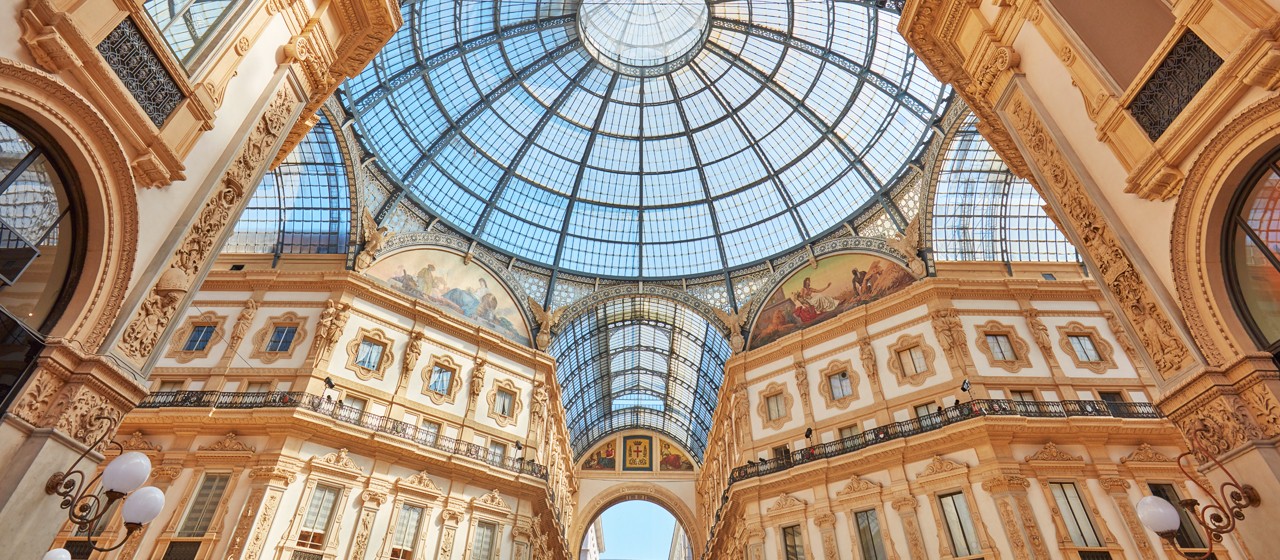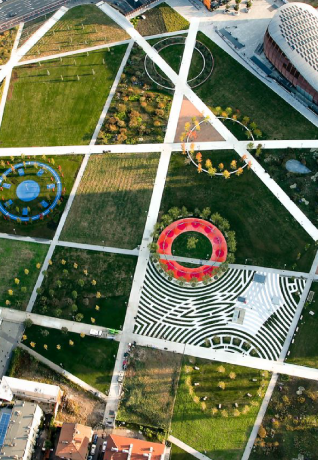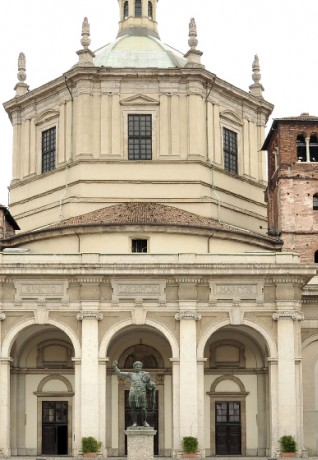Why invest in Milano
Milano in figures

Milano is the business and financial capital of Italy, with over 800,000 firms headquartered in the regional territory and a regional GDP +€390 billion.
Thanks to favorable tax regulation and fiscal incentives to boost innovation, excellence in higher education, as well as excellent geographic location at the intersection of Europe’s north-south and east-west axes of trade and transportation, Milano offers foreign investors a flourishing innovation ecosystem and a great pool of talent at lower cost of doing business relative to European counterparts.
Milano’s sectoral excellence ranges from Life Sciences and Agribusiness to Fintech, Advanced Manufacturing, and, of course, Fashion&Design, which employs over 90,000 for a total turnover of more than €14 billion.
Over 5,000 multinationals are headquartered in Milano, employing over half a million people. The city’s financial sector is home to over 240 banking groups, including UniCredit, Mediobanca, HSBC and BNP Paribas, and over 13,000 financial companies, including the Italian Stock Exchange (Borsa Italiana), which has a total market capitalization of €598 billion (Q3 2022).
2022 was a booming year for FDI in Milano. In Q1-Q3 2022, more than €1.3 billion was invested into Milano’s start-ups - an increase of 90% with respect to 2021 (PitchBook).
Milano now has its first two homegrown unicorns, Scalapay and Satispay. Entrepreneurs and investors believe the city has all it takes - research infrastructure, human capital and creative talent - to become a leading European technology hub.
Innovation in Milano touches several areas: pharmaceuticals, food, fintech, fashion.
PHARMA
Italy is among the world’s largest exporters of pharmaceuticals in per capita terms. Milano dominates the Italian pharma industry and is the 2nd research hub for pharmaceuticals in the EU. Milano’s health care industry revolves around 17 Research Hospitals (IRCCS), 60% of the national amount. But the milanese Life Sciences ecosystem is not only limited to Pharma: the city hosts 1,394 Medical Devices companies with 37,000 people employed.
FOOD
Since the hosting of the World Expo Milano 2015, themed “Feeding the Planet, Energy for Life” Milano was appointed world capital of food. The city is a major hub for Italy’s agri-food and functional foods industry, with 986,853 hectares under cultivation in the Region, a strong specialization in Nutraceuticals, Dairy production, Machinery, and Food Packaging.
Food in figures:
€575 bln Agrifood industry accounts for 25% of Italy’s GDP
74+ foreign agri-food companies located in Lombardy employing more than 18,900 people
33% of Italy’s Agri-food startups which received 53% of allocated funding are based in Lombardy
FINTECH
Milano has developed a mature Fintech ecosystem, within an already established, strong network of financial institutions which make Milano one of the global financial capitals.
Fintech in figures:
47% of the Italian Fintech companies are located in Milano
The city’s financial services count over 13.000 companies and employ nearly 128,847 employees
FASHION
Last but foremost, Milano stands out as one of the world capitals of fashion.
Fashion in figures:
11,000 companies operating in the sector
93,000 employees
€14.7+ bln revenues in 2021
The FDI Unit of Milano&Partners has 500 companies in the pipeline (with fintech and biotech dominating) and has assisted the landing of Illumina, Stuart, Napo Therapeutics, Impact.com, Planted, Wuxi Paike, ChargePoint, Solaris, Trade Republic, Level Quantum, Flexport in Milano’s innovation ecosystem, for a total of around €40 million invested in the course of the year. Milano also launched a marketing campaign at Slush Helsinki, to increase Milan's international reputation as a hub for innovation.
The proximity of universities, companies, entrepreneurs, alongside efficient public transportation, give Milano the elements needed for a fertile innovation ecosystem.
Milano attracted €672 million in VC funding during the first nine months of 2022. This ranks it third across Europe behind the much more established hubs of Paris (€1.6bn) and London (€1.28bn). Yet, despite Milano’s recognition as a business center, the city is still lagging in terms of venture capital investment with respect to Paris, Berlin, Barcelona, and Madrid.
That’s why the city is incubating initiatives like the arrival of SkyDeck Europe, UC Berkeley’s accelerator, which is supported by Cariplo Factory in the sprawling MIND – Milano Innovation District being built around the Human Technopole, the Galeazzi Hospital and the new Science Campus of the University of Milan, or Polihub, spinoff of the Polytechnic University of Milan for biotech and big data, and Bocconi for Innovation (B4i), the startup center set up by the leading Milanese university to mentor innovative entrepreneurs.
Strong supply of talent comes from the seven big Milanese universities, which are a magnet for international students. Although the cost of living and quality of human capital are comparable with other European capitals, salaries for coders, engineers and technical personnel tend to be lower in Milano than in other EU cities (about 75% of Berlin’s).
Milan is the gateway to the Italian economy and has the means and talents to become the technological and financial hub of Southern Europe.

 Log in
Log in




